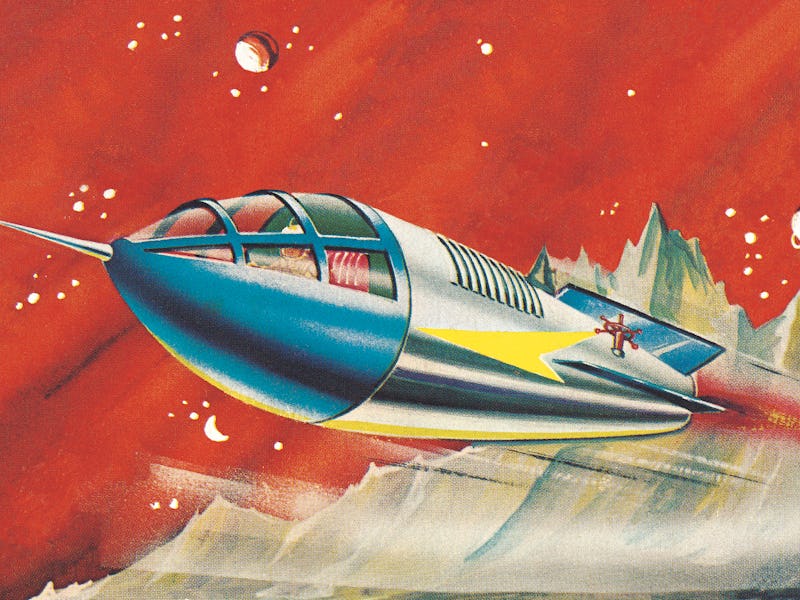How Laura Lam created Handmaid's Tale in space for her new book, Goldilocks
Lam joins Inverse Happy Hour to read an exclusive preview of her new sci-fi thriller.

Laura Lam is the author of several sci-fi novels in addition to the fantastical YA Micah Grey trilogy. She joins Inverse Happy Hour to give us a sneak preview into her latest literary world, but this time it's set in space. Goldilocks, out May 5, is a dystopian thriller centered around five women who take it upon themselves to save the human race by stealing a spaceship and heading to the Goldilocks zone, which Lam describes as “not too hot, not too cold.”
Lam continues:
“Goldilocks is about the first all-female space mission to an exosolar planet called Cavendish, which is about 10 1/2 light-years away, and they’re basically going to it because Earth only has 30 years left of habitability due to climate change. So this is their Planet B, and it’s supposed to be humanity’s hope for a better future. But things on Earth are not going so well. There’s rising misogyny and bigotry, and the women end up actually stealing the spaceship to be able to go to Cavendish because they know they’re the best people for the job.”
In addition to an exclusive reading of her new book and a dive into the extensive space travel research that went into writing it — several NASA scientists were consulted — Lam also took the opportunity to recommend Alex Garland's Devs for a Silicon Valley thriller that knows how to keep you on your toes: “It’s really unpredictable. Usually, you at least have a sense of where the story is going, and I just got to the end of Episode 4, and I’m like, Wait what?!”
Below are the Inverse Happy Hour editorial highlights:
On the dystopic world she created based on real-life events— “A lot of world-building is, you kind of go, if this, then that, so I sort of exaggerated things that are happening now that are making me uncomfortable. So, for example, the heartbeat bills that started coming into state legislation last year with abortion, I thought, well if Earth is dying, then has a lot of finite resources, you wouldn’t exactly maybe completely ban abortion, because then you’d have overpopulation problems.”
“But if you still wanted to use it as a tool to curtail reproductive health and reproductive rights, you would perhaps make it so a woman has to have her first child, and then afterwards they’d be fitted with a state-mandated IUD. And to be able to have any more children, you’d have to pay a really expensive additional tax. So then having more than one child becomes a status symbol. So the rich are still able to have as many kids as they want, whereas you know people on lower socioeconomic opportunities can’t. But it also still will keep women out of the workplace, potentially for five years, and then it’s harder to get back in.”
“What I really love about science fiction is that it’s usually our dreams and our nightmares about the future wrapped into one.”
“So I made it a bit sneaky, so it’s not outright we’ve banned you completely, but we’ve added a lot of extra barriers to get you to where we want to go.”
On what science fiction can do for us right now— “You know that science fiction has an ending; you know that it’s going to follow a narrative state. Whereas, at the moment, we’re in this weird sort of limbo where we don’t know when it’s going to end, we don’t know how it’s going to end, and that uncertainty is really starting to get to us.”
“So I think stories provide comfort because they provide shape, and they also provide different potential features. So what I really love about science fiction is that it’s usually our dreams and our nightmares about the future wrapped into one.”
—
A huge thanks to Lam for joining us!